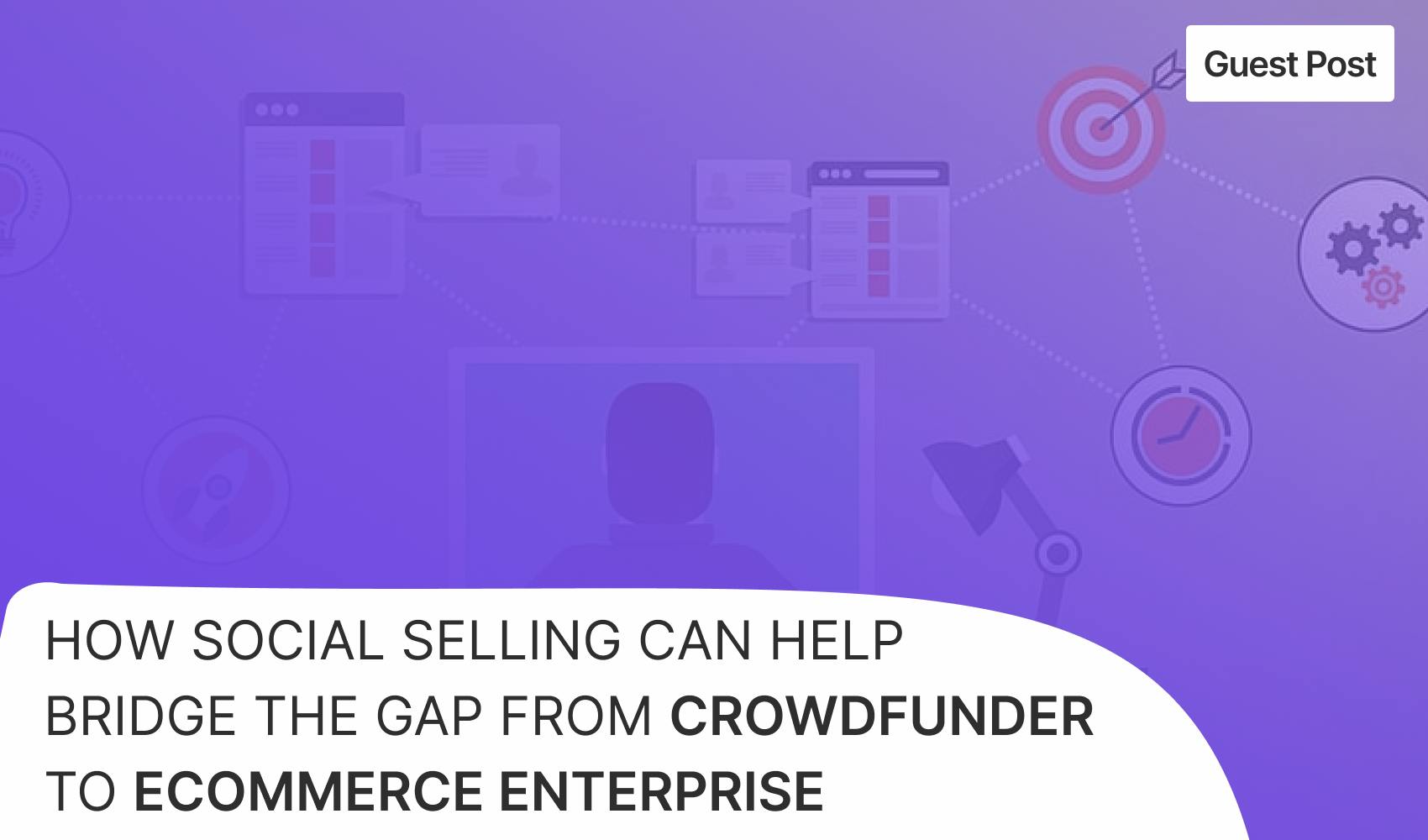How Social Selling Can Help Bridge The Gap From Crowdfunder To Ecommerce Enterprise

After some stumbling blocks in the early days of Kickstarter, crowdfunding has become a tried and tested method of raising funds for a new venture. It holds some major advantages over other forms of funding: it lowers the risk for individual investors, engenders loyalty by allowing backers to influence development, and grants brands enormous operational freedom.
But it’s important to remember that a successful crowdfunding campaign is a jumping-off point, not a destination. Once you’ve closed a campaign that returned all the financial support you asked for, you need to start delivering on your promises. It’s partially about money, of course, because dissatisfied backers can seek refunds if you don’t use their investment well, but it’s mostly about reputation. Fail to press on, and you’ll be written off as a wasteful experiment.
If you’ve just got an ecommerce startup off the ground, then, how do you navigate the choppy waters between hitting your crowdfunding goals and reaching the sought-after enterprise level? Well, one of the keys is going to be social selling: in essence, it’s the art of finding any and all ways to earn sales through social media. But how can you best take advantage of it? That’s what we’re going to look at here. Let’s get started.
It Can Line Up Invaluable Long-Term Partners
It isn’t only customers that ecommerce businesses need to think about. It’s suppliers, insurers, sellers, manufacturers, couriers, and even business experts: crowdfunded startups may not need money from anyone other than their backers, but they might need advice from people who have impressive track records and are willing to pass some suggestions to people they like.
Social selling, then, isn’t just about directly selling products: it’s also about selling brands through forging powerful networking bonds, though those bonds need to be cultivated. There’s an episode of the Marketing Speak podcast (Secrets to Social Selling with Brynne Tillman) that has some useful points on this topic. To quote Tillman, you must always remember to “nurture your connections” instead of simply lining up virtual friends for the sake of it.
In essence, your chances of reaching the enterprise level will go up significantly with every enterprise-level professional you have on your side. You’ll get better recommendations, stronger deals, and more leeway in almost every regard. And in a time of such competitive markets, knowing the right people can give you a profound advantage over your rivals.
It Can Move The Focus Away From Your Claims
To secure their funding, startups using crowdfunding platforms often make lofty claims. They’ll state that they’re set to produce revolutionary products that will rock their industries, or that they’ll provide truly remarkable levels of service. This works tremendously well, but it also leaves them tasked with living up to those claims. If they manage it, doesn’t that mean they’re set for success? Well, things aren’t that simple, because there’s an element we’re missing.
That element is promotion. Having a great product won’t get you as far as it should if people aren’t talking about it, and the issue with continuing to carry the marketing is that your bias will lead your target audience to doubt your ongoing claims. If you’ve always said that whatever you offer is fantastic, trumpeting your incredible reception will seem equally questionable.
To get ahead, you need others to issue positive statements about your value proposition, and social selling is perfect for that because it all occurs in the public eye. By highlighting strong feedback, usefully fielding negative comments (as Khoros notes), tasking relevant influencers with commenting on what you offer, and asking for suggestions that you then act upon, you can demonstrate your quality in a way that people won’t be inclined to question harshly.
It Can Help You Expand Your Story
A key ingredient of a successful crowdfunding campaign is telling a good brand story. Maybe there’s something unique about the origin of your company, or maybe you faced remarkable adversity in your quest to deliver your product. Regardless of the specifics, having a strong narrative behind you is a huge advantage — and it shouldn’t stop after the funding.
After all, you need your backers to continue their support in further ways. You need them to recommend you to others, spread the word about your updates, and become your regular customers when you’re up and running. And if you want to retain their support, you need to keep that story going. Simply dropping the narrative that grabbed so much attention would be worse than a waste of potential: it would likely convince some that the narrative was never real.
Through social media posts and exchanges, you can steadily document your progress, carrying on with narrative threads that show the organic development of your business. And as you grow your story, it’ll attract yet more people who’ll want to jump on the bandwagon, helping you thrive all the way to the enterprise level.
Wrapping Up
Social media is a vast and intimidating world, but it has so much to offer for growing businesses in the ecommerce world. By making impactful networking connections, shifting the focus to social proof, and adding to your brand story, you can carve out a relatively-straightforward path to enterprise status.

Rodney Laws is an eCommerce expert with over a decade of experience in building online businesses. Check out his reviews onEcommercePlatforms.ioand you’ll find practical tips that you can use to build the best online store for your business. Connect with him on Twitter @EcomPlatformsio.

